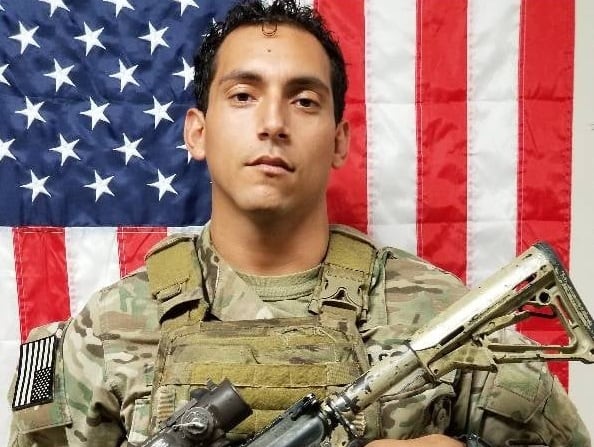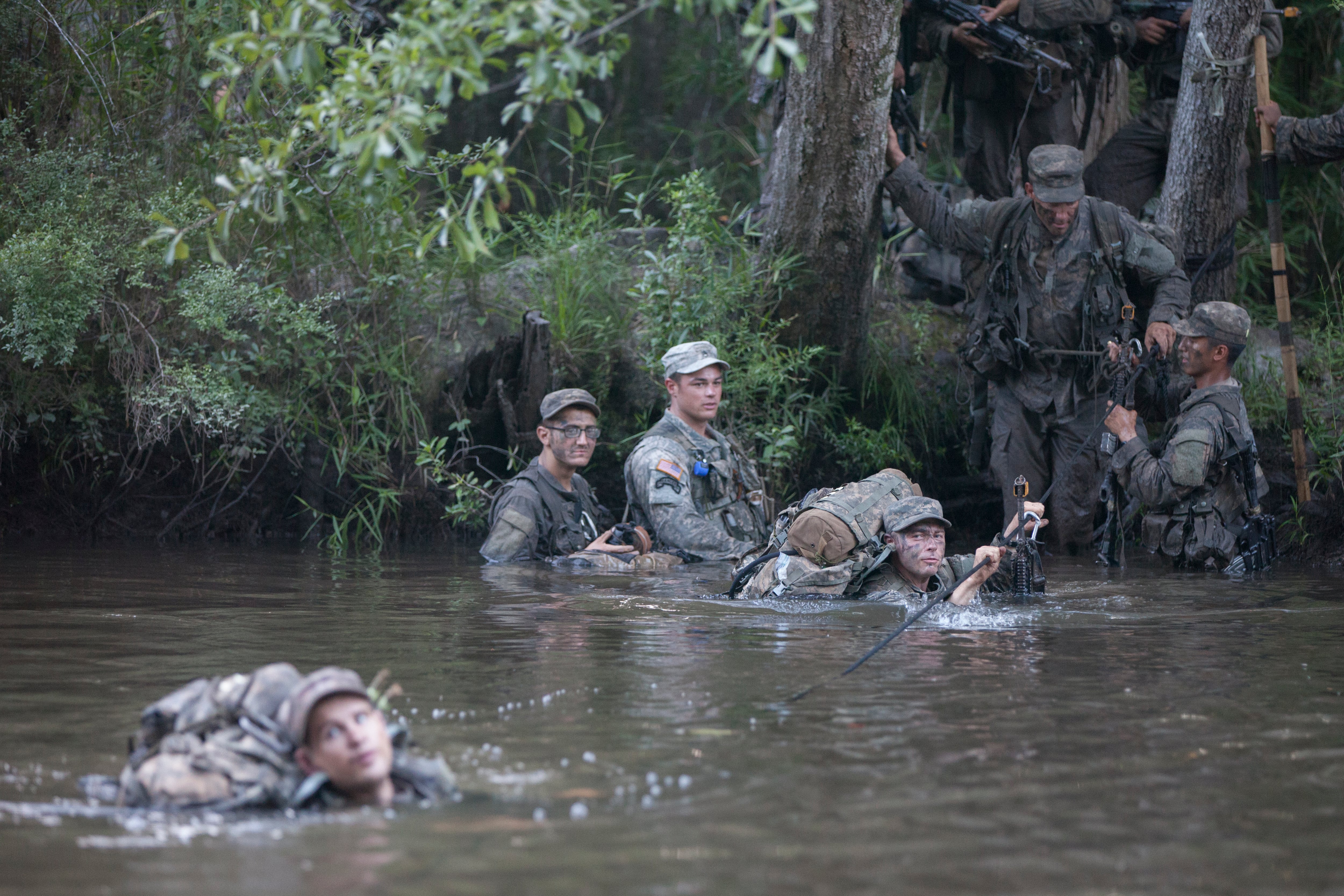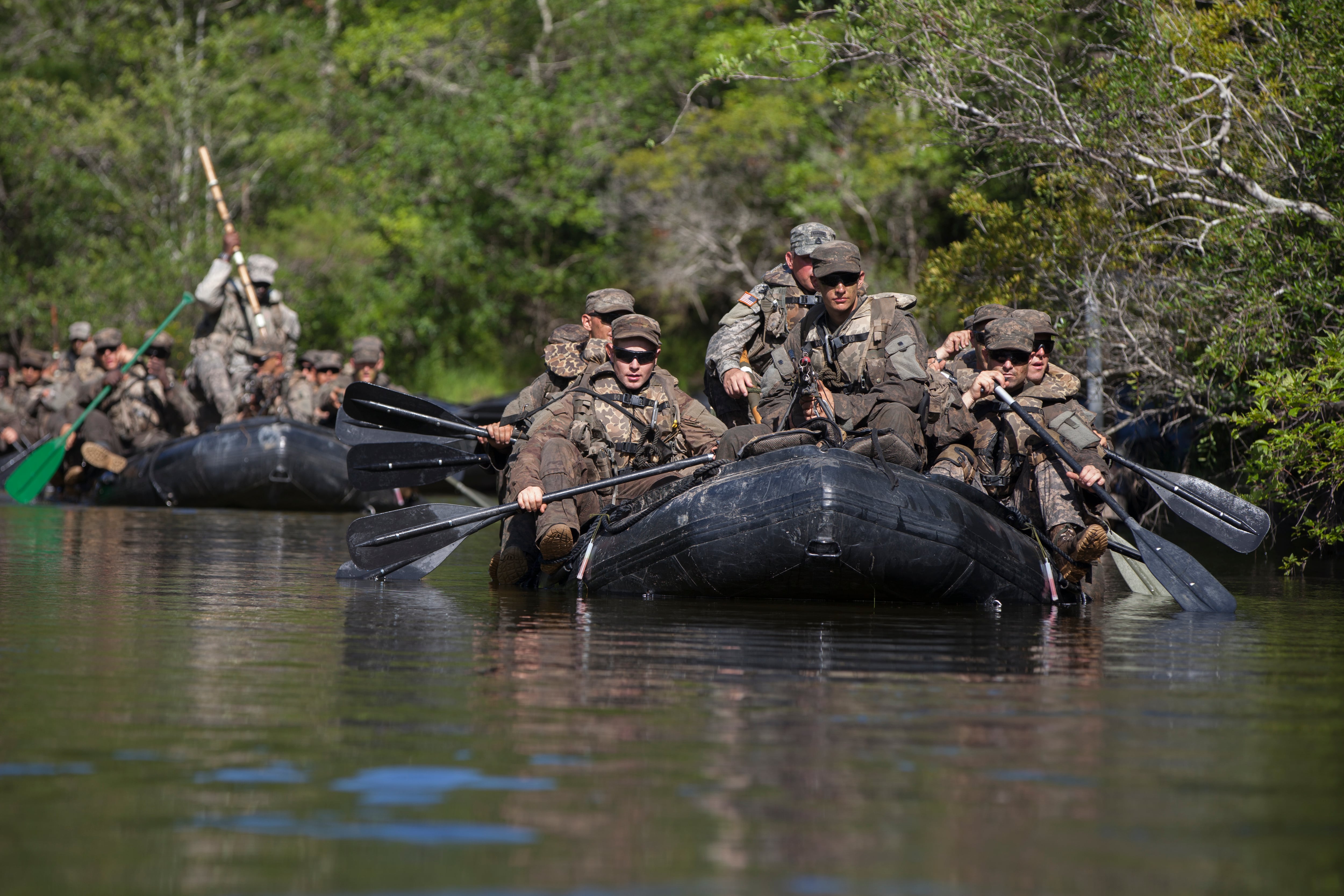Cpl. James A. Requenez was a high performer, known for his selflessness and carrying the most weight on ruck marches.
But prior to a river crossing during Ranger School’s final phase in Florida in March 2021, he exercised a rare moment of personal concern, according to witness statements made after his drowning death that were obtained by Army Times.
Before Requenez’s class began their final field exercise, instructors asked which students were the “weak swimmers,” a label that offers extra safety considerations. Requenez raised his hand.
However, an instructor told the 28-year-old member of 3rd Battalion, 75th Ranger Regiment, that he had to have been identified as a weak swimmer during the initial phase of the course in Georgia, three witnesses said. Requenez also passed the water survival assessment there, so he would not carry the label in Florida.
But one student said in his statement that Requenez was not a strong swimmer. The two had talked previously and Requenez did not want to undergo that water assessment again, which involves swimming with a rifle and load-bearing vest. But whatever worries Requenez had weren’t voiced further.
On the day of the river crossing, he even volunteered to carry his squad’s M240 machine gun, though he had never taken it across a rope bridge before. Ranger School policy states that any student who is a weak swimmer cannot carry special equipment, and they also must wear a chemical light stick for identification.
“He willingly took the 240 that day and seemed fine throughout the swamp,” one fellow trainee’s witness statement reads. “He didn’t voice any struggles.”
Requenez’s drowning death during the river crossing that followed was investigated by the U.S. Army Combat Readiness Center. Witnesses statements and a mishap report were obtained by Army Times through a Freedom of Information Act request.
There were three recommendations included in the report, all of which were redacted. Requenez’s wife was told one change to the course involves the use of life vests among instructors.
“The two instructors that did try to help my husband got tired,” Nieves Requenez told Army Times. ”They think that with the life vests they could have been able to help a little bit more since they wouldn’t have lost a lot of energy.”

On the eighth day of the field exercise, March 25, 2021, the students were tasked with moving by Zodiac boat through swampland and crossing a river before raiding an objective. They reached the river close to sunset, at about 6:20 p.m.
The current was stronger than expected. After two students who were good swimmers set up the rope, the instructors sent across one student who was previously identified as a weak swimmer. Everything seemed to be going well.
But another M240 gunner that day, whose name was redacted from the investigation, said in his witness statement that the rope “bridge was pretty loose,” making it harder to cross.
The unnamed student had trouble when he got to the halfway point because he couldn’t lean back and push away the rope, as students were told to do, without taking on water. Instead, he let go of the rope and began to swim.
He lost control of his M240′s tug line as he swam. When he reached the river bank, he tried to warn instructors that he accidentally left his weapon on the rope, but they told him to standby because they were dealing with something more pressing: The next M240 gunner, Requenez, was struggling to keep his head above water.
Instructors coached him from the riverbank to calm down and lean back so his rucksack could serve as a floatation device, according to the investigation. Safety swimmers went out to help him get his ruck off, but it kept rolling and Requenez couldn’t control it. Some time during the struggle, Requenez went under and his team lost sight of him.
An instructor traced the rope underwater. He felt the picatinny rail of an M240, but nothing else, according to his witness statement. The team began taking down the rope so a rescue boat could cross and search downstream in case Requenez had washed away.

But as the soldiers pulled the rope to the riverbank, they felt considerable weight. An unresponsive Requenez was still attached to it by his swimmer safety line, along with the other M240, according to the investigation.
Medics performed CPR on Requenez as the rescue boat sped a mile down the river to an ambulance, which took him to a helicopter. From there, he was flown to Eglin Air Force Base Hospital.
Requenez arrived at about 7 p.m. and was pronounced deceased by the attending physician a short while later.
Investigators couldn’t say for sure how large a role the two M240s on the rope played in the drowning accident, Requenez’s wife said. But she was told the machine guns weighed the rope down, submerging it and making it difficult to handle.
Ranger Training Brigade commander Col. Antwan Dunmyer said in a statement to Army Times that “improvements have been implemented in the Florida Phase to increase the safety of the course and prevent future incidents.”
The command declined to elaborate on what those changes were.
“In order to provide the most combat-realistic training, the Airborne and Ranger Training Brigade does not publicly discuss all details of the training,” Dunmyer’s statement reads. “Our commitment remains providing the most disciplined and well-trained Ranger Instructors and the most realistic training environment to develop future combat-ready leaders.”
Requenez wasn’t a Ranger School graduate yet, which is a leadership course available to all soldiers, but he had already been selected and assigned to the Ranger Regiment, a special operations unit known for its direct action raids.
His wife had never known him to be a poor swimmer, but Ranger School takes a toll on the body. Students are deprived of sleep and exhausted in the field. Extra weight on the rope and the river’s strong current likely added to whatever concerns had prompted Requenez to try to identify himself as a weak swimmer days earlier.
“I feel like [students] should just be able to identify themselves as weak swimmers at any time,” Nieves told Army Times. “My husband was always aware of how strong the water really is, and he’d always tell me not to underestimate it.”
Kyle Rempfer was an editor and reporter who has covered combat operations, criminal cases, foreign military assistance and training accidents. Before entering journalism, Kyle served in U.S. Air Force Special Tactics and deployed in 2014 to Paktika Province, Afghanistan, and Baghdad, Iraq.





